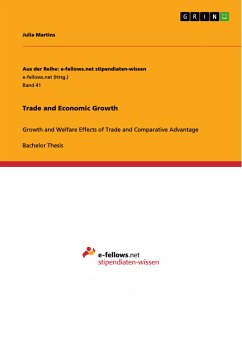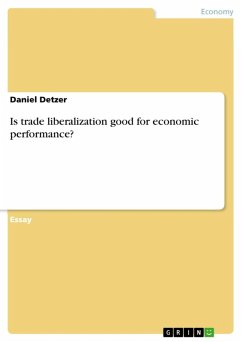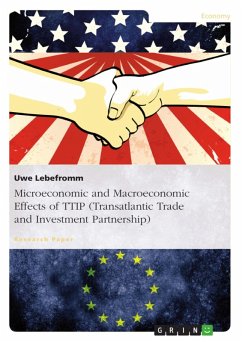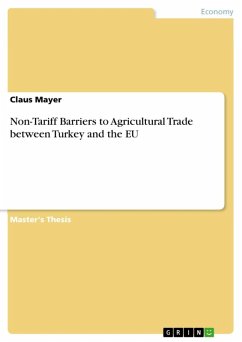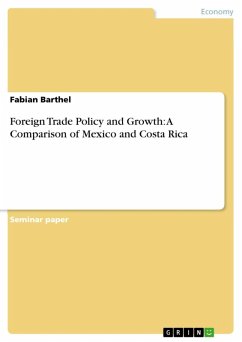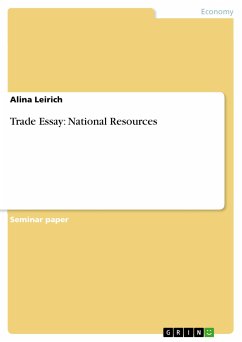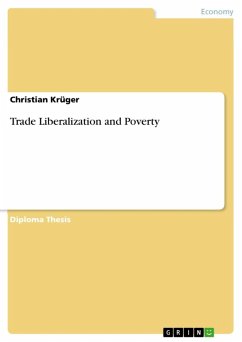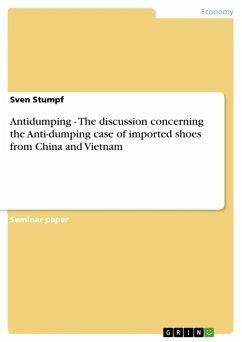Bachelor Thesis from the year 2010 in the subject Economics - Foreign Trade Theory, Trade Policy, grade: 1,0, Vienna University of Economics and Business (Institut für Außenwirtschaft und Entwicklung), language: English, abstract: The following paper relates two of the most important economic phenomena, namely economic growth and international trade. Before analysing the relationship between two economic phenomena in detail, an overview of some of the most prominent empirical empirical studies concerning the relationship between openness to international trade and economic growth in general is provided. As most of them seem to have reached the conclusion that trade influences growth in a positive way, the question for the reasons of this presumably positive relationship arises. Factors which cause or influence economic growth in general as well as various channels through which trade might have an influence on growth are presented in the third and forth section. The importance of various sources of economic and the Solow-Model and the AK-Model are introduced in order to distinguish between long-run and short-run effects of capital accumulation, learning by doing and R&D on economic growth. The remaining analysis concentrates on one channel in particular, namely on how trade determines a country's import and export structure. The importance of the range of products a country produces is enormous and affects economic growth and welfare. The fifth section introduces the static Ricardian model of comparative advantage in order to show how productivity levels dictate the patterns of trade and determine which products a country produces depending on static productivity levels at the time a country opens up to trade. Since productivity levels do, however, not remain constant but are influenced by learning by doing and specialisation, dynamic effects of specialisation on comparative advantage should not be neglected. For this purpose, a model of dynamic comparative advantage is introduced in the sixth section. It shows how comparative advantages which exist at the time an economy opens up to trade tend to lock in and determine trade patterns in the long run. The question is raised when an economy should open up to trade and a justification of the infant industry argument is provided on theoretical grounds. The paper is concluded by a welfare analysis, which tries to answer the question under which conditions free trade or protectionist policies are best suited for a country.
Dieser Download kann aus rechtlichen Gründen nur mit Rechnungsadresse in A, B, BG, CY, CZ, D, DK, EW, E, FIN, F, GR, HR, H, IRL, I, LT, L, LR, M, NL, PL, P, R, S, SLO, SK ausgeliefert werden.

